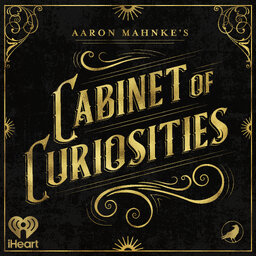185 | Super Soldier
Some people become extraordinary through bravery, while others achieve it through ingenuity. Both of today's stories, though, share one common trait: passion.
Learn more about your ad-choices at https://www.iheartpodcastnetwork.com
 Aaron Mahnke's Cabinet of Curiosities
Aaron Mahnke's Cabinet of Curiosities


